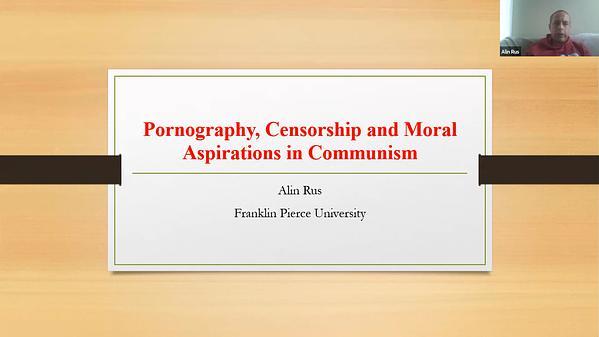Would you like to see your presentation here, made available to a global audience of researchers?
Add your own presentation or have us affordably record your next conference.
keywords:
women
body
gender
With few exceptions, menstruation has surprisingly played a small role in most anthropological studies of women’s lives. Nevertheless, the near-universal experience of menstruation not only shapes menstruants’ lives on a day-to-day basis, it also affects economic, political, religious, environmental, and other societal realms. This broad impact makes the personal experience of menstruation also a political and public one. Sex education, menstrual product access and advertising, and discourses on gender roles all influence the embodied experience of menstruation. In effect, institutions such as government bodies, hospitals, schools, and businesses collectively create a public script that the menstruant is expected to follow. This roundtable examines what happens when menstruants’ personal lived experiences do not follow social expectations, with a focus on three themes: religion, education, and medicine/biology. Around the world, menstrual blood is seen as a powerful and dangerous body fluid, with the ability to spoil crops, break tools, and enhance--or bewitch--love interests. Earlier scholarship often focused on the polluting qualities of menstrual blood and, by extension, the female body. Such negative discourses are inscribed in foundational religious texts such as the Bible, the Buddhist Blood Bowl Sutra, and the Qur’an. In many traditions, menstruators are prohibited from entering places of worship/divinity, praying, and participating in religious rituals. Rules about menstruation are also imparted through (in)formal education from teachers, family, and peers. In many societies, the modes and amount of education on menstruation are often highly gendered, and in multiple ways. Boys are less likely than girls to receive formal education on menstruation. Likewise, mothers are often expected to be a source of information on menstruation, with fathers left out of the conversation. More broadly, menstruation is often framed in terms of reproductive capacity and culturally shaped gender roles • especially the notion that women should birth and raise children. School teachings on menstruation often present a simplified version of biomedical knowledge. However, it has become increasingly obvious that biomedical understanding of human female reproductive systems is far from complete and lags behind other fields, to the detriment of many menstruating people. Both medical and general understandings of menstruation can be improved by accounting for a broader range of physiological and cultural experiences surrounding periods. Speakers in this roundtable will approach these varied issues in diverse ways that draw on medical, cultural, biological, and linguistic anthropology as well as public policy. We examine peoples as diverse as progressive Muslim groups in North America and online; rural and urban women in Michoacan, Mexico; and young Japanese women in Tokyo. Together our presenters will address religious limitations on activities during menstruation; the relationship between menstrual education and consumer choices about menstrual products; the biological variability of the menstrual cycle and its connections to other physiological processes; and people’s experiences with ‘irregular’ (non-monthly) menstrual cycles and dysmenorrhea. We show that experiences and understandings of menstruation shape people’s quality of life, their religious and sociopolitical identities, their views on fertility and motherhood, and their ability to participate fully in society.

